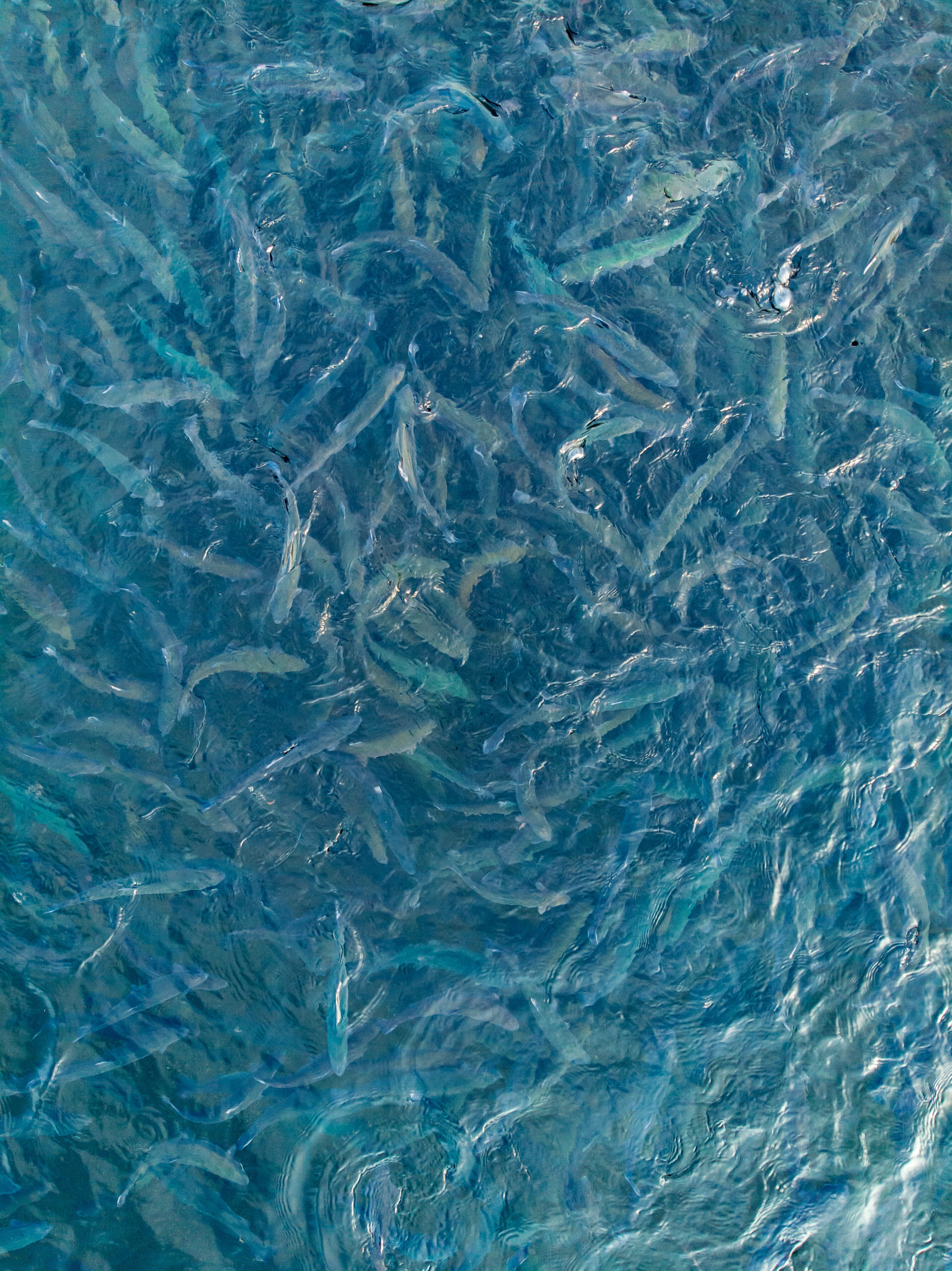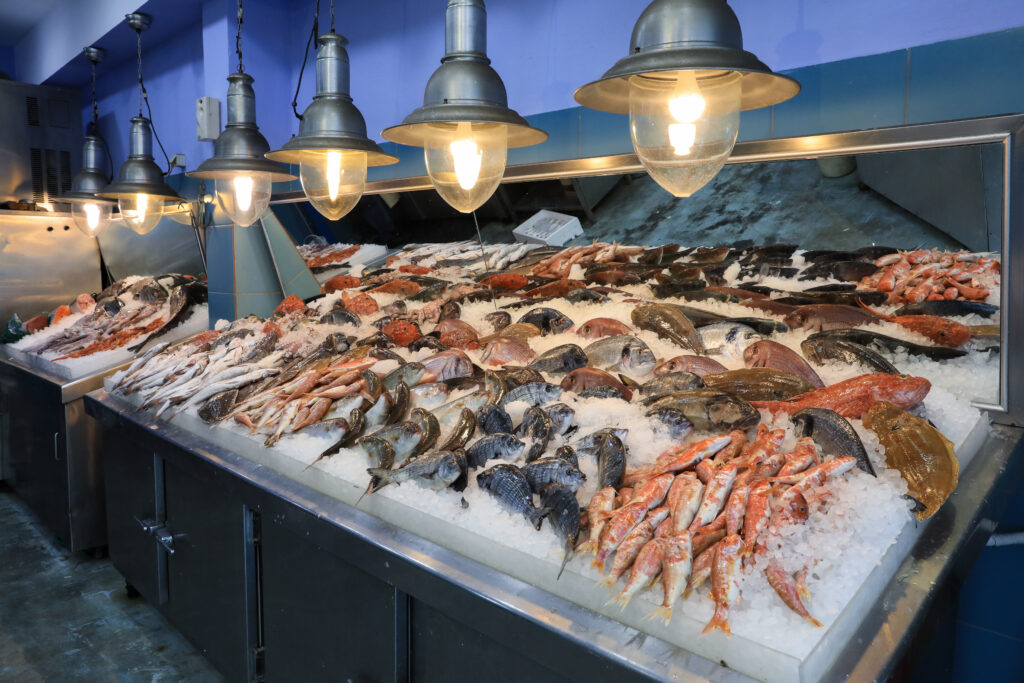Impact on Aquaculture Industry
Farmed Fish - Importance and Impact of Objective Welfare Assessment
Problems and Challenges of the Aquaculture Market
- Rapid growth of the aquaculture sector (FAO, 2018, Nogueira et al., 2020, OECD/FAO 2021)
- High fish feed costs due to health and welfare issues in the aquaculture sector (Marijani et al., 2019, Saha et al., 2022)
- High mortality rates reduce profitability (Munro, L.A. 2020)
- Environmental (Tacon and Metian, 2008), sustainability (Boyd, 2015), and ethical concerns
- Until now, reliable tools for assessing and monitoring fish welfare have been lacking
- Different fish species, each with unique welfare requirements, are used in aquaculture
Ethical Responsibility, Environmental Sustainability, Economic Viability and Consumer Trust
A tailored and objective fish welfare assessment, as provided by ProFishCare, has a profound impact on aquaculture. It enhances fish health, promotes ethical treatment, increases productivity, supports environmental sustainability, and builds consumer trust. By integrating these assessments into their operations, aquaculture businesses can achieve long-term success and contribute to a sustainable and ethical future for the industry.
Fish are sentient animals capable of suffering and feeling pain
Fish are intelligent and sensitive creatures that exhibit behaviors similar to many other animals. They explore their surroundings, travel, socialize with each other, hunt for food, and even engage in playful activities. Certain species of fish are known to care for their young. As sentient beings, fish are capable of experiencing suffering and pain.
Welfare for Over 100 Million Tons of Farmed Fish is required
Over 100 million metric tons of fish are currently farmed in aquaculture. Since we are responsible for all these fish, we should care for them as best as we can according to their needs.
Challenges for the Welfare of Farmed Fish
However, in intensive fish farms, achieving optimal animal welfare becomes challenging and it is often unavoidable that farmed fish are exposed to a variety of stressors that can affect their wellbeing. The crowded conditions can lead to physical health issues and increased susceptibility to diseases. The lack of adequate space and environmental enrichment can negatively impact the mental well-being of the fish, leading to stress and abnormal behaviors. Additionally, the highly controlled and artificial environments often fail to provide the conditions necessary for natural living, preventing fish from engaging in their instinctual behaviors.
Addressing these challenges requires a comprehensive approach to fish welfare that considers and integrates all three components to improve aquaculture practices and to support the holistic welfare of farmed fish.



Customized Solutions are Essential for Objective Welfare Assessment of fish in Aquaculture
User-friendly and objective measurement and monitoring of fish welfare are crucial for optimizing and maintaining conditions in aquaculture. However, the fact that the typical stress factors and strategies for coping with stress are very different for each fish species further adds complexity to endeavor to provide a relevant assessment method. To mitigate the impact of potential stressors, objective measurement procedures and tailored protocols for each fish farm are essential.
ProFishCare’s offerings align perfectly with this need, providing customized solutions for assessing fish welfare in aquaculture settings – tailored to each individual fish farm and optimized for each specific fish species.
Please contact us for more details.
9 Reasons for Objective Fish Welfare Monitoring
Prioritizing fish welfare is essential for ethical, environmental, and economic reasons, and it plays a vital role in ensuring the sustainability and integrity of aquaculture practices.
Enhanced Fish Health and Wellbeing
Tailored assessments ensure that the unique needs and stressors of each fish species and aquaculture facility are accurately identified and addressed. This personalized approach leads to healthier, more resilient fish, reducing mortality rates and enhancing overall wellbeing.
Ethical Responsibility and Humane Treatment
Objective welfare assessments ensure that farmed fish are treated with the highest standards of care and compassion. By recognizing and mitigating sources of stress and discomfort, ProFishCare’s assessments promote humane and ethical treatment, aligning with societal expectations and ethical obligations.
Increased Productivity and Efficiency
Healthy, well-cared-for fish are more productive, leading to improved growth rates, better feed conversion, and higher quality yields. Objective assessments enable farmers to optimize conditions, resulting in more efficient and profitable aquaculture operations.
Environmental Sustainability
Objective welfare assessments help minimize the environmental impact of aquaculture. By promoting optimal living conditions and reducing stress-related health issues, these assessments contribute to sustainable practices that preserve aquatic ecosystems, reduce pollution, and support biodiversity.
Risk Management and Disease Prevention
ProFishCare’s assessments provide early detection of stressors and potential health issues, allowing for timely interventions. This proactive approach helps prevent disease outbreaks and reduces the need for antibiotics and other treatments, promoting a healthier and more sustainable farming environment.
Transparency and Consumer Trust
Objective and reliable welfare assessments enhance transparency in aquaculture practices. By demonstrating a commitment to high welfare standards, aquaculture businesses can build trust with consumers, stakeholders, and regulatory bodies. This transparency is increasingly important in a market where consumers demand ethical and sustainable food production.
Compliance with Regulatory Standards
Tailored welfare assessments help aquaculture facilities comply with evolving regulatory requirements and industry standards. By staying ahead of compliance needs, businesses can avoid potential legal issues and ensure their operations meet the highest standards of animal welfare.
Long-term Economic Viability
Investing in fish welfare through tailored assessments supports the long-term economic viability of aquaculture operations. Healthier fish, improved productivity, and sustainable practices lead to cost savings, higher profits, and a stronger market position.
Global Food Security
ProFishCare’s approach contributes to global food security by promoting efficient and sustainable aquaculture practices. By improving the welfare and productivity of farmed fish, we help ensure a stable and reliable supply of high-quality seafood to meet the growing global demand.
